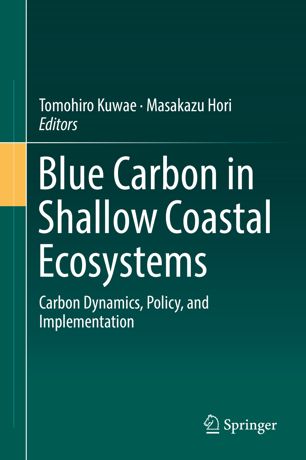

Most ebook files are in PDF format, so you can easily read them using various software such as Foxit Reader or directly on the Google Chrome browser.
Some ebook files are released by publishers in other formats such as .awz, .mobi, .epub, .fb2, etc. You may need to install specific software to read these formats on mobile/PC, such as Calibre.
Please read the tutorial at this link: https://ebookbell.com/faq
We offer FREE conversion to the popular formats you request; however, this may take some time. Therefore, right after payment, please email us, and we will try to provide the service as quickly as possible.
For some exceptional file formats or broken links (if any), please refrain from opening any disputes. Instead, email us first, and we will try to assist within a maximum of 6 hours.
EbookBell Team

4.3
58 reviewsThis book presents a comprehensive and innovative understanding of the role of shallow coastal ecosystems in carbon cycling, particularly marine carbon sequestration. Incorporating a series of forward-looking chapters, the book combines thorough reviews of the global literature and regional assessments—mainly around the Indo-Pacific region and Japan—with global perspectives to provide a thorough assessment of carbon cycling in shallow coastal systems. It advocates the expansion of blue-carbon ecosystems (mangroves, seagrass meadows, and salt marshes) into macroalgal beds, tidal flats, coral reefs, and urbanized shallow waters, demonstrating the potential of these ecosystems as new carbon sinks. Moreover, it discusses not only topics that are currently the focus of blue-carbon studies, i.e., sedimentary carbon stock and accumulation rate, but also CO2 gas exchange between the atmosphere and shallow coastal ecosystems, carbon storage in the water column as refractory organic carbon, and off-site carbon storage. Including highly original contributions, this comprehensive work inspires research beyond the specific regions covered by the chapters. The suite of new concepts and approaches is refreshing and demonstrates that blue-carbon research is indeed a vibrant new field of research, providing deep insights into neglected aspects of carbon cycling in the marine environment. At the same time the book provides guidance for policy makers to deliver benefits to society, for example the inclusion of blue carbon as a carbon offset scheme or the Nationally Determined Contribution (NDC) in the Paris Agreement, and also for building resilience in coastal socio-ecosystems through better management. This book is intended for all those interested in the science and management of coastal ecosystems.